Tahereh and Jamshid were deeply in love, devoted to their faith and were executed two days apart.
They were both active in the Baha'i community in Shiraz and worked to help those in need. They were also both strong and courageous individuals who faced persecution with determination and faith.
"Tahereh always smiled in prison and encouraged other women to do the same. She believed that if they were ever executed, they should face it with dignity and not be ashamed. To demonstrate this, she would contort her face and stretch her mouth wide, as if letting out a boisterous laughter,” according to one of Tahereh’s fellow prisoners.
Tahereh Arjomandi (Siavoshi) was among the 10 Baha'i women hanged on June 18, 1983, in Shiraz. Two days prior, her husband, Jamshid Siavoshi, was executed alongside five other Baha'i men.
Tahereh was only 30 years old when she was handed over to the executioners.
She was born in 1953 into a Baha'i family in Tehran. She was a bright girl who began attending school at the age of six. With remarkable achievements, she successfully completed her primary and secondary education in Tehran. A few months after receiving her diploma and finishing school, Tahereh married a fellow Baha'I, the young Jamshid Siavoshi.
Jamshid, born in 1944 in the village of Adasiyeh in Jordan, returned to Iran with his family at the age of five. He completed his primary and secondary education in Yazd before moving to Tehran, where he secured employment in a private institution. It was in Tehran that Jamshid and Tahereh met and married in 1972. Following their marriage, the young couple settled in Chandar village near Karaj.
During that period, Tahereh had the opportunity to take the Tehran University Nursing Faculty exam. She achieved a passing grade in the exam for studying abroad, with provisions made for her to pursue her education in the United States. However, she made the decision to remain in Iran and continue her studies at the National University. Tahereh would travel to Tehran multiple times a week to attend university classes until, finally, in 1956, she obtained a bachelor's degree in nursing. Following that, she and her husband resided in Yasouj city.
Life in Yasuj: Losing Her Property and Her Job
Tahereh secured a position as a nurse at the recently established Yasuj Hospital, while Jamshid set up a small shop selling electrical appliances.
However, towards the end of 1979, a group targeted the couple’s store and looting it. Tahereh, meanwhile, because of her Baha’i beliefs, was terminated from her job.
Within a few days, the couple received a distressing phone call from the city's police chief, who was acquainted with Jamshid and his wife. The police chief informed them that a group, incited by a local cleric, was planning to raid their house that night.
They intended to rob their belongings and force them into converting to Islam, with police unwilling to intervene. Faced with this alarming situation, in the dead of night, Jamshid's family abandoned all their possessions and drove to Shiraz by private car, seeking to begin anew in the safety of this city.
Life in Shiraz
Farrokh, Tahereh's brother residing in America, observed the challenging circumstances faced by Tahereh and her husband, urging them to immigrate to America to save their lives.
He wrote to his sister, saying, "My dear sister, come to America with Jamshid. Nursing is highly valued here, and the income can support the entire family." However, Tahereh declined the offer, expressing her desire to serve her fellow countrymen in her hometown. She believed that if she could contribute as a nurse, she would do so for their benefit.
Initially, Tahereh and Jamshid resided in the house of Jamshid's brother in Shiraz. Tahereh worked at Fatehi Nejad hospital in Shiraz. However, after a year, when the dismissal of Baha'is employed in the Ministry of Health began, she, along with other Baha'i nurses, was terminated.
She later found employment at a private hospital called Dr. Mir hospital, where she worked for approximately three years until her arrest. Jamshid, on the other hand, opened a small clothing shop in Shiraz.
During the war with Iraq, a significant number of Baha'is from Khuzestan province became displaced and sought refuge in Shiraz. The expulsion of Baha'is from government positions led to an increasing number of people in the local Baha'i community requiring assistance.
Tahereh and Jamshid devoted much of their time to helping those in need. They provided clothing and supplies, accompanied individuals to doctors and hospitals for treatment, and assisted in finding suitable housing.
In the book Talaei Menzel Maqsoud, a relative recalls an incident:
"Jamshid used to clean the donation bins for the needy. We asked why they didn't clean them, themselves. He explained that these individuals had their own dignity. Once, they had prosperous lives, and now they find themselves in such circumstances. We should not harm their morale. He carefully inspected each piece of clothing, separating the torn ones, stating that one should consider whether they would use these items themselves. If they were unusable, they should not be given to anyone or hurt anyone's feelings."
This incident became an excuse for the interrogators from the Islamic Revolutionary Guard Corps (IRGC) to intensify their harassment. Olia Rouhizadegan, one of the prisoners, recalled Tahereh sharing the following with her:
"Jamshid mentioned that his assistance to the needy was being considered a crime. They questioned him, saying, 'Why did you help the Baha'is?' They claimed that if it weren't for him, the Baha'is whose properties were confiscated or who were fired would be in financial destitution and forced to embrace Islam."
Arrest of Jamshid and Tahereh
On October 23, 1982, over 30 Baha'i citizens residing in Shiraz were arrested by agents of the Revolutionary Guards, led by Zia Mir-e-Madi, under the orders of the Shiraz Revolutionary Prosecutor.
There was a high likelihood of Jamshid's arrest, which led his family to decide that he should not return home for a few days. On October 26, Jamshid went to his uncle's house to visit his cousin, who had been arrested several months previously.
The security forces happened to be present, and arrested Jamshid. The agents then accompanied Jamshid to his house, where they seized three sacks containing his books and writings. They placed the sacks on Jamshid's shoulders and emptied the contents into the IRGC vehicle.
A relative of Tahereh Arjomandi recounted, "During the 40 days that Tahereh was not detained, Jamshid was brought home three times under guard, and the guards thoroughly searched the entire house. Jamshid's physical condition was not good. He walked hunched over and struggled to maintain his balance. His soles were swollen, and his gait was unsteady. The officers did not allow them to communicate, not even to exchange greetings."
Since Jamshid's arrest, Tahereh visited the IRGC headquarters every day, bringing fruits and clothes in a package, and inquiring about Jamshid. However, not only did they refuse to accept the fruits and clothes, but they also provided no information about Jamshid's whereabouts.
On November 29, IRGC agents once again raided the homes of Baha'is in Shiraz, arresting an additional 40 individuals. Among the detainees was Tahereh.
According to a relative of the couple, Tahereh and Jamshid were deeply in love, and their affection was evident to everyone.
During the period when Jamshid was detained, Tahereh expressed her inability to live without him and prayed that she would be arrested so she could be close to him.
After her own arrest, when her family inquired about her well-being, she shared that she felt content because being in a prison cell made her feel that Jamshid was just behind one of the walls, bringing her a sense of proximity to him.
IRGC Interrogations
There are no reports of physical torture inflicted on Tahereh, but she shared with her family instances of psychological torment during interrogations.
On one occasion, she was summoned and told that Jamshid had converted to Islam and would soon be released. (He had not: this was a tactic the guards used to pressure her.) They suggested that she follow suit to secure her own release. The discussion with Tahereh lasted for an hour, but in the end, she made it clear that her husband had his own choice, and she would not choose that path under any circumstances.
Jamshid, however, experienced severe torture and humiliation while in prison. He endured 45 days of solitary confinement. During a meeting, Jamshid requested some salt. Tahereh recounted to her family that his legs were bruised and infected from the whip lashes he received. It is believed that he wanted the salt to make saltwater solution to clean his wounds.
In the book Junod Malakout, a recollection from one of the Baha'i prisoners is mentioned:
"Mr. Mostaqim told me that there was a time when we young people would joke and laugh among ourselves. One of the guards noticed this and suddenly called out Siavoshi's name through the speaker. He went to the designated area, and we could hear the sound of the whip striking his palm. It was a deeply sorrowful and pitiful scene because Jamshid was a highly vulnerable individual. It remains unclear why, out of all the young people present, he was singled out for punishment."
Tahereh and Jamshid’s First Meeting in Prison
In the book Talaei Manzel Maqsoud, based on the memoirs of a Baha'i prisoner, the following account is provided:
"We didn't encounter Jamshid Siavoshi until we were transferred from Ward 6 to Ward 5. That afternoon, the door to our room opened, and a person was brought in. It was Jamshid Siavoshi, who appeared extremely unwell and unconscious. Upon his arrival, he seemed unfamiliar with any of us. We introduced ourselves one by one, but he showed no recognition. He leaned against the wall and sat down. A few moments after he entered, the door opened again, and he was asked to leave, as he was unable to move at all. During this time, Tahereh, his wife, was granted a face-to-face meeting with him. She provided him with comfort and shared hopeful words. Tahereh requested that the officers provide Jamshid with some nourishing food to help revive him. After the meeting, Jamshid was brought back to our room. This time, his demeanor had completely changed. He engaged in conversations with everyone, appeared calmer, and eventually lay down."
Hakimi, one of the prisoners during that period, narrated:
"By the way, on that day, while I was being interrogated in another room, I overheard Mrs. Siavoshi's voice saying, 'Jamshid, don't be afraid. Don't be afraid at all. Whatever God wills shall happen.'"
Transfer to Adel Abad Prison
After approximately a month, Tahereh was transferred from the IRGC detention centre to Adel Abad prison.
Upon their arrival at Adel Abad prison, the interrogations and trials of the Baha'is commenced. Numerous Baha'is were brought before closed courts, where the proceedings lasted only a few minutes and they were denied the right to legal representation.
Hojjat al-Islam Ghazaei, the Sharia Ruler of Shiraz, exerted pressure on the detainees, presenting them with a choice between converting to Islam or facing execution.
However, the Baha’is remained steadfast in their beliefs, refusing to renounce them, which led to the judge subjecting them to insults and derogatory remarks, ultimately resulting in their expulsion from the courtroom.
Tahereh's Trial
Tahereh's parents faced numerous difficulties as they traveled from Tehran to visit their daughter in Shiraz. On one occasion, when they arrived at Adel Abad prison for a visit, they were informed that Tahereh had been taken to trial. Determined, they made their way to the court and encountered Tahereh after the session had ended. Distraught, Tahereh exclaimed, "They will kill me."
"Please don't worry, they are simply trying to intimidate you," her family reassured her.
However, Tahereh persisted, stating firmly, "I swear to God, this is the truth. The judge continuously yelled and insulted me, accusing me of planning Bahá’í meetings, acting as a moral teacher, and misleading children. He told me my verdict will be execution."
The periodic gatherings held by Baha'is, during which the community members would pray, discuss their community matters, and share meals, are common occurrences in Baha’i communities and are freely by Baha’is worldwide. The community’s and the ethical and educational classes offered to children and teenagers, meanwhile, are part of the Baha'i community’s contributions to the rest of society.
Life in Adel Abad
Tahereh, like many other Baha'i prisoners, faced the reality of her death sentence. However, she still cherished life and held on to the hope that her life would not end. Within the confines of the Adel Abad prison, she applied her training to care for and treat fellow inmates, including Baha'is, politicians, and ordinary individuals.
During one of her visits, Tahereh's mother expressed her desire for Tahereh to embody the courageous spirit of her namesake, Tahirih Qurrat al-Ayn Ain, a prominent figure in early Baha'i history and the first Iranian woman to remove her headscarf in public. She reassured Tahereh, saying, "Taherah, I want you to be like real Taherah. Don't worry about us."
Tahereh laughed and responded, "Mother, rest assured."
Upon returning to her room, she shared the uplifting conversation with her friends, saying, "I had been concerned about my family, but my mother's words brought me a sense of peace. I no longer have any discomfort."
Execution
On Sunday, June 12, 1983 Hojat’ol Islam Mir-e-Madi announced to the Baha'is that the death sentence had been approved, although he had not yet signed it. The prosecutor also instructed the prison authorities to hold four hearings for the Baha'is, giving them the opportunity “to repent and convert to Islam; otherwise, they would face execution.”
Two days later, Tahereh and five other Baha'i women were summoned to the office of Torabpour, the prison director. In this meeting, they were asked a single question: Are you willing to renounce your beliefs? Below the question, it was stated, "Confirm your answer four times." All six Baha'i women firmly answered "No" and signed their responses.
On June 16, six Baha'i men, including Jamshid Siavoshi, Tahereh's husband, were executed. On the evening of June 18, Tahereh and her friends learned about the execution of the six Baha'i men during their weekly meeting with the families. After the meeting, Tahereh and nine other Baha'i women were separated from the rest of the prisoners.
That night, or possibly the following morning, these 10 Baha'i women were hanged one by one, each forced to witness the executions of those before them on the gallows.
Their bodies were buried in the Baha'i cemetery of Shiraz without the knowledge of their families, and no religious ceremonies were performed. Tahereh’s family was not even allowed to bid a final farewell to their daughter's remains.
The executed prisoners were denied the opportunity to write a will or leave any last words for their families.
Tahereh and Jamshid had one final meeting in prison. During this encounter, Tahereh reassured Jamshid, saying, "Jamshid, be completely at ease. Don't worry about me. You go ahead, and I will follow you."
Tahereh Arjomandi, as she had agreed with her husband that day, sacrificed her life two days after him in the name of her faith.
Jamshid Siavoshi was executed on June 16, and Tahereh Arjomandi Siavoshi was executed on June 18, 1983.












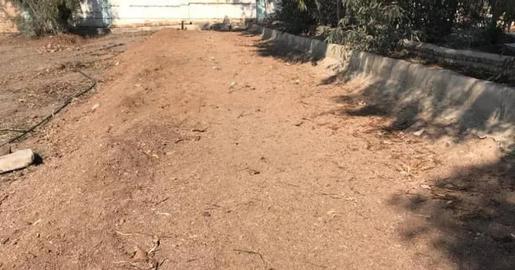
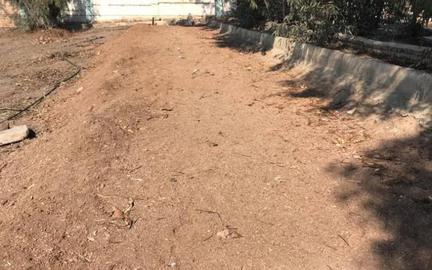

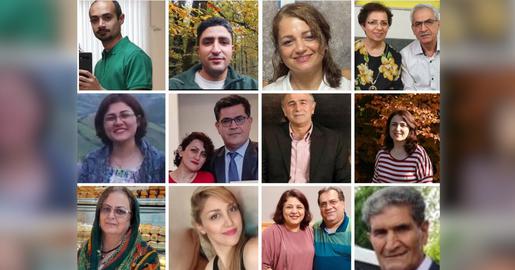
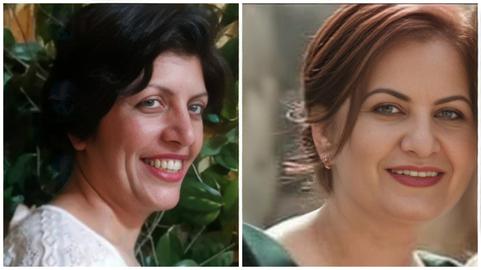



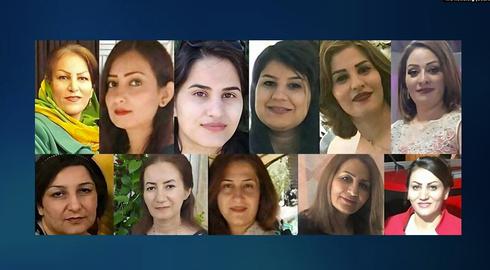
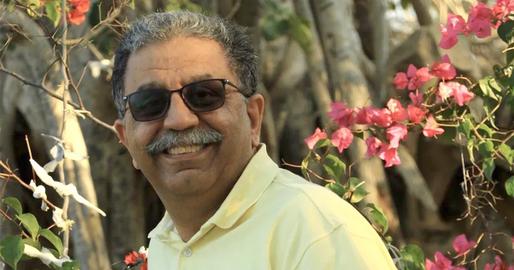

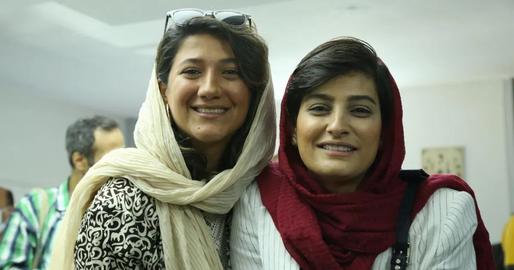
comments